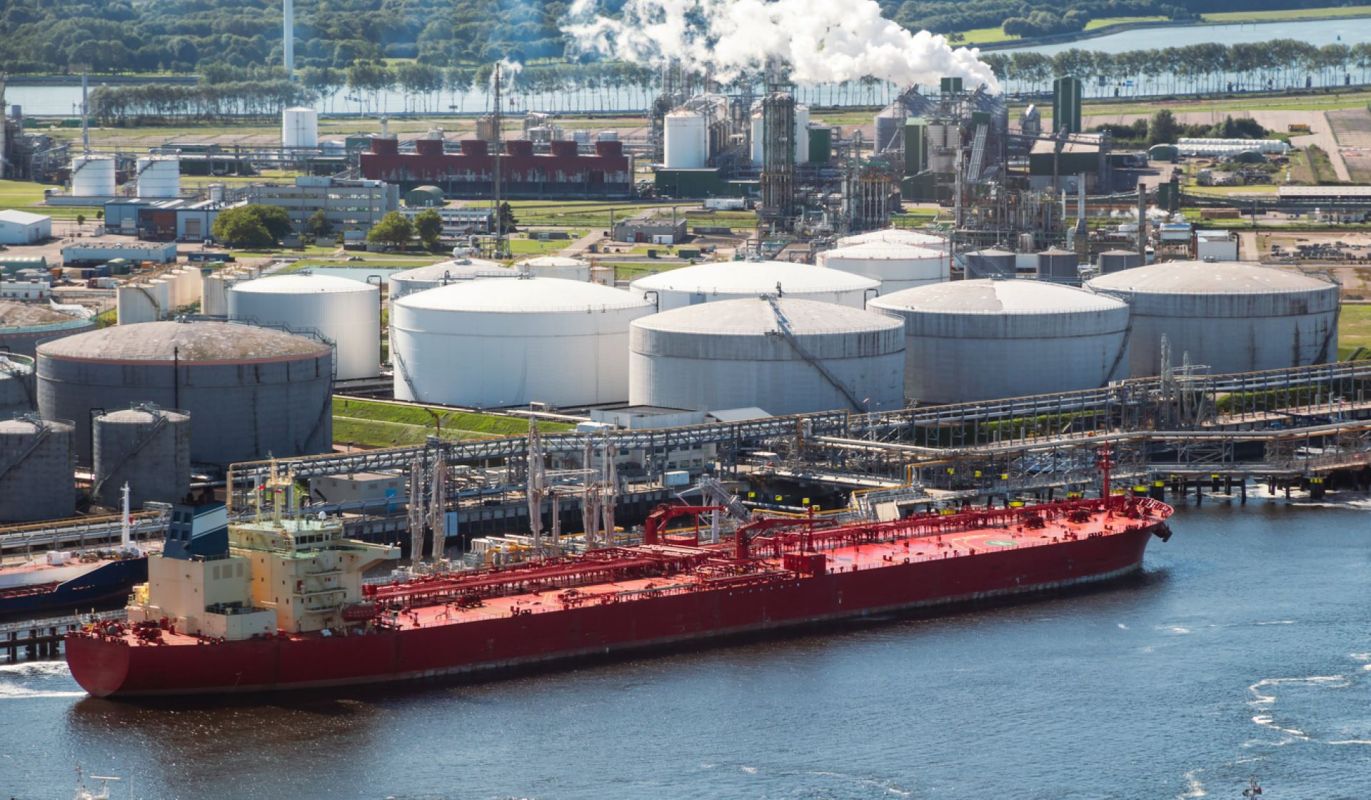The owner of the world's largest oil refinery — which, at a capacity of 1.24 million barrels a day, is a major contributor to our planet's overheating — is investing billions of dollars in more responsible projects.
India's Reliance Industries, a petroleum and chemicals superpower, has made public its "swappable, multipurpose" battery for electric vehicles, according to a Reuters report. The tech was highlighted during a recent renewable energy exhibition.
An interesting twist to the concept is that the batteries can also be used to power your refrigerator and other home appliances with the help of an inverter. Inverters turn direct-current energy into the alternate-current electricity we use in our homes.
Reuters reported that the versatility is considered a big perk for Reliance officials, as one battery can be used for both transportation and toasters, among other appliances. A photo shared by the news agency shows an EV bike with a swappable battery under the seat. It's about the size of a standard (gas-powered) car battery, with a handle on top. A replacement battery is seen nearby, by a charger.
"We have a 15-year vision to build Reliance as one of the world's leading new energy and new materials compan[ies]," Reliance leader Mukesh Ambani said on the company's website, noting the advantages of a circular economy.
The opportunity for profit in the sector isn't lost on the business leader, who mentions the endeavor as a "multi-trillion" opportunity "for India and the world."
For Reliance's part, Reuters reported that the company has invested $10 billion into cleaner projects. A scroll through subsidiary Reliance New Energy's recent investments includes battery, solar, and hydrogen endeavors.
"It is also an opportunity to make clean and green energy abundantly available at an affordable price to every Indian, every Indian enterprise, and every Indian utility," per an Ambani quote on the Reliance "New Energy" page.
The Indian government is also kicking in on cleaner tech, offering a $1.3 billion plan geared to promote EV manufacturing and incentives to encourage their purchase, the Associated Press reported. The country has 2.3 million EVs, most of them bikes and scooters.
All that said, Reuters has also separately reported that Reliance's pre-existing dirty energy business is showing no real signs of slowing down, with the company fully intending to maintain its enormous oil refineries and petrochemical operations.
"We have already put in place a comprehensive strategy to ensure that all our investments and all our assets remain not just safe, but actually become profitable even as fossil fuel demand wanes," Ambani said at a shareholder meeting, per Reuters.
So whether or not Reliance ends up transitioning to mainly clean energy sources, the future of power will rely on clean, abundant energy sources, like solar and wind.
Join our free newsletter for cool news and actionable info that makes it easy to help yourself while helping the planet.









